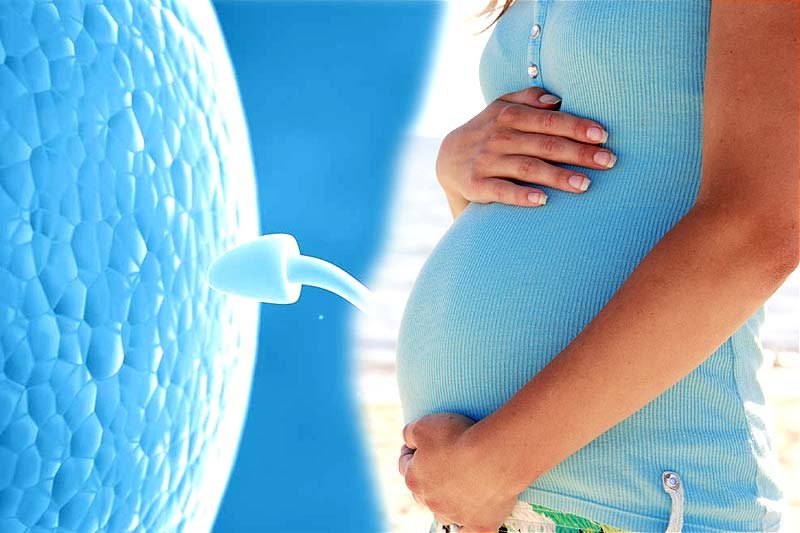What is IVF treatment and how it relates Pregnancy: IVF stands for “In vitro fertilization”, which is a fertility treatment in which eggs and sperm are mixed in a laboratory. Then the resulting embryos are assessed for quality, and one or more are kept in the uterus through the cervix.
What is IVF treatment?
IVF is the most commonly used modern fertility treatment, which accounts for more than 98 percent of assisted reproductive technology (ART) procedures. About 2 percent of children born in the United States of America are found using ART
In India there is city called Bangalore which is leading in IT and Medical Research Sectors. IVF Center in Bangalore, India is best in Treatment as well as Cost.
Is IVF treatment for everyone?
IVF can help everyone get pregnant if they have problems with egg quality or ovulation and blocked fallopian tubes, if the partner has problems with motility or sperm count; or they are using donor eggs for pregnancy. If you have been searching for a treatment, rest assured that the care and personal attention you will get at fertility clinic can help you realize your dreams of a family. IVF can also be an option if the doctor can’t find out the problem.
IVF requires following cases, but it is not considered to be the last hope:
- Problem with sperm: when male partner sperm is not in adequate quantity then IVF is required with ICSI, and IVF procedure is helpful to them, who need their sperm to be penetrated in the egg for fertilization
- Problem with ovulation: for releasing the healthy eggs IVF is required, when ovary is not working properly
- Problems with Fallopian tube: through uterus, egg travels in the fallopian tube, in some cases if the fallopian tubes gets blocked due to any disease, then the only option left with the couple is IVF
- Uterine problems: ART can be used to overcome uterine problems, and problems related to conceiving
- Cervix problem: sexual intercourse can be affected if the cervix response abnormally. In this case IUI (Intra-uterine Insemination) or IVF is required for a mother to get pregnant
How it work?
Ovary stimulation.
For 8 to 14 days near your menstrual cycle, you take a gonadotropin, a type of drug that stimulates your ovaries to make multiple mature eggs for pregnancy. You should also take a synthetic hormone like cetrorelix or leuprolide to make your body release the eggs too early.
Follicle development.
When you take these medications, you should visit to your doctor’s clinic every three to four days to keep your blood hormone levels checked and to do ultrasound measurements of your ovaries. It allows your doctor to monitor development of the follicles where eggs mature.
The trigger shot.
When the follicles are ready, you get a “trigger shot,” it’s like an injection that makes your eggs to mature fully and become capable of being fertilized. After 37 hours of your trigger shot, your eggs are ready to be retrieved.
Gathering the eggs.
The doctor gives you an anaesthetic and inserts an ultrasound probe through your vagina to take look at your ovaries and identify the follicles. Then a thin needle is inserted through the vaginal wall to remove the eggs from the follicles. Eight to 15 eggs are normally retrieved. You may have some spotting and cramping for few days afterward, but most of the women feel better in a couple of days.
Fertilization.
An embryologist will inspect your eggs before combining them with your partner’s sperm and incubating them overnight. Fertilization usually takes place during this time, but the abnormal eggs may not be fertilized. But if sperm quality is poor, or if the fertilization was not successful during previous IVF cycles, your doctor may tell you to use a technique called intracytoplasmic sperm injection (ICSI). In ICSI process, a single sperm is injected directly into each mature egg.
Developing embryos.
Four days after the retrieval of egg, some of the eggs that were successfully fertilized become seven to ten celled embryos. By the sixth day, some of these embryos will become blastocysts with a fluid-filled cavity and tissues which is the initial stage of separation into placenta and baby.
Embryo selection.
The embryologist selects the most viable embryo or embryos to place in your uterus four to five days after the egg retrieval. If there are any extra embryos, they may be frozen and used for upcoming IVF cycles.
Planting the embryos.
Depending on your age and diagnosis, your doctor places between one and five embryos in your uterus by inserting a thin tube (a catheter) through your cervix. You might feel some mild cramping, but you won’t need anaesthesia.
Successful implantation.
If the treatment works, an embryo implants in your uterine wall and continues to grow into a baby. Keep in mind that if more than one embryo is transferred, your chance of pregnancy is higher, but so are the odds of having a multiple pregnancy – about 25 percent of babies born through IVF are healthy.
How much time will IVF take?
It takes about five to six weeks to complete one cycle of IVF.
You have to wait for few weeks to let your eggs get mature. Then you and your partner will have to spend about half a day at your doctor’s office or clinic having your eggs retrieved and fertilized. Again you will have to go back four to five days later to have the embryos inserted into your uterus, but you’ll be able to go home that same day.
How much does IVF cost?
In the United States of America, it will cost you around $12,400 for one cycle of IVF if you’re using your own eggs and sperm of your partner. The amount you’ll have to pay depends on how much medicine you will need, your location, and whether your state allows insurance coverage for fertility treatments.
In India IVF Cost in Bangalore is around Rs.70000 – Rs. 90000
Fitness “Write For Us”
If you wish to get your post published in Women Fitness Magazine, You are most invited for Guest Post.
Related Videos:
Beautiful video about IVF
https://www.youtube.com/watch?v=eO27B563GYg?autoplay=1&rel=0
How IVF works? explained in Hindi by Ridge IVF doctors
https://www.youtube.com/watch?v=qNYfcI_nMW0?autoplay=1&rel=0
ivf treatment video In Vitro Fertilisation HD
https://www.youtube.com/watch?v=Jk6Nihhp__0?autoplay=1&rel=0
IVF Treatment Process Step by Step Video – How IVF Procedure Works?
https://www.youtube.com/watch?v=J1xHUA_fiQ4?autoplay=1&rel=0
IVF Success Rates You Should Know About
https://www.youtube.com/watch?v=EAeC9TGtKKA?autoplay=1&rel=0
IVF, Fertility Treatment, Assisted Conception, pregnancy, Test Tube Baby
https://www.youtube.com/watch?v=8i-11qLNCjc?autoplay=1&rel=0
What is IVF treatment and how it relates Pregnancy
ivf treatment process, what is ivf treatment, ivf full form, ivf treatment video, ivf treatment in hindi, ivf in islam, ivf procedure painful, ivf treatment success rates, ivf treatment process, ivf treatment video, ivf treatment cost in india, What is IVF treatment, ivf treatment in hindi, ivf treatment success rates, ivf procedure painful, ivf in islam, ivf full form,
What is IVF treatment and how it relates Pregnancy
About Author:
 Utkarsh Bansode, is online health research blogger from India and likes to write on topics related to health.
Utkarsh Bansode, is online health research blogger from India and likes to write on topics related to health.




